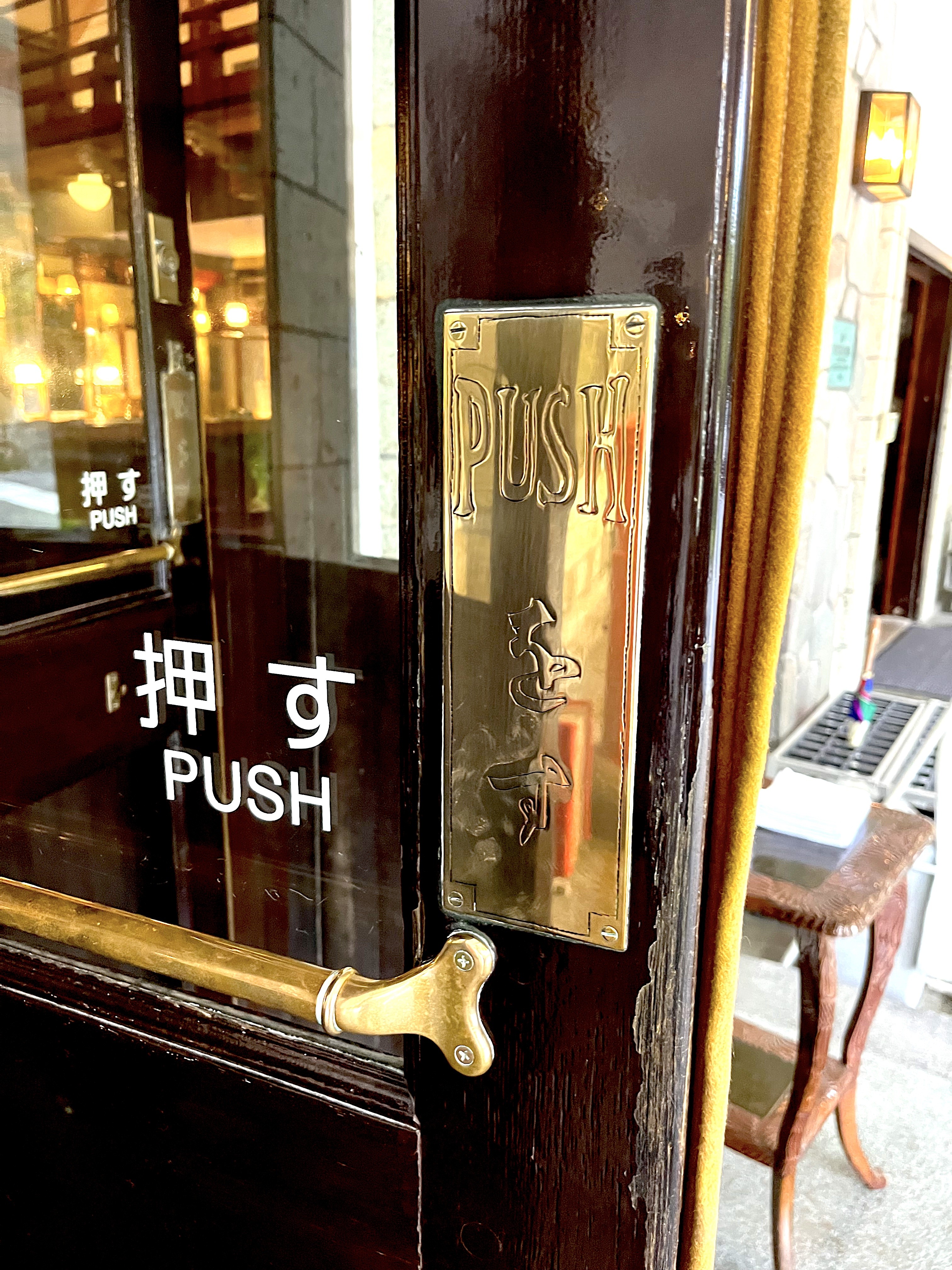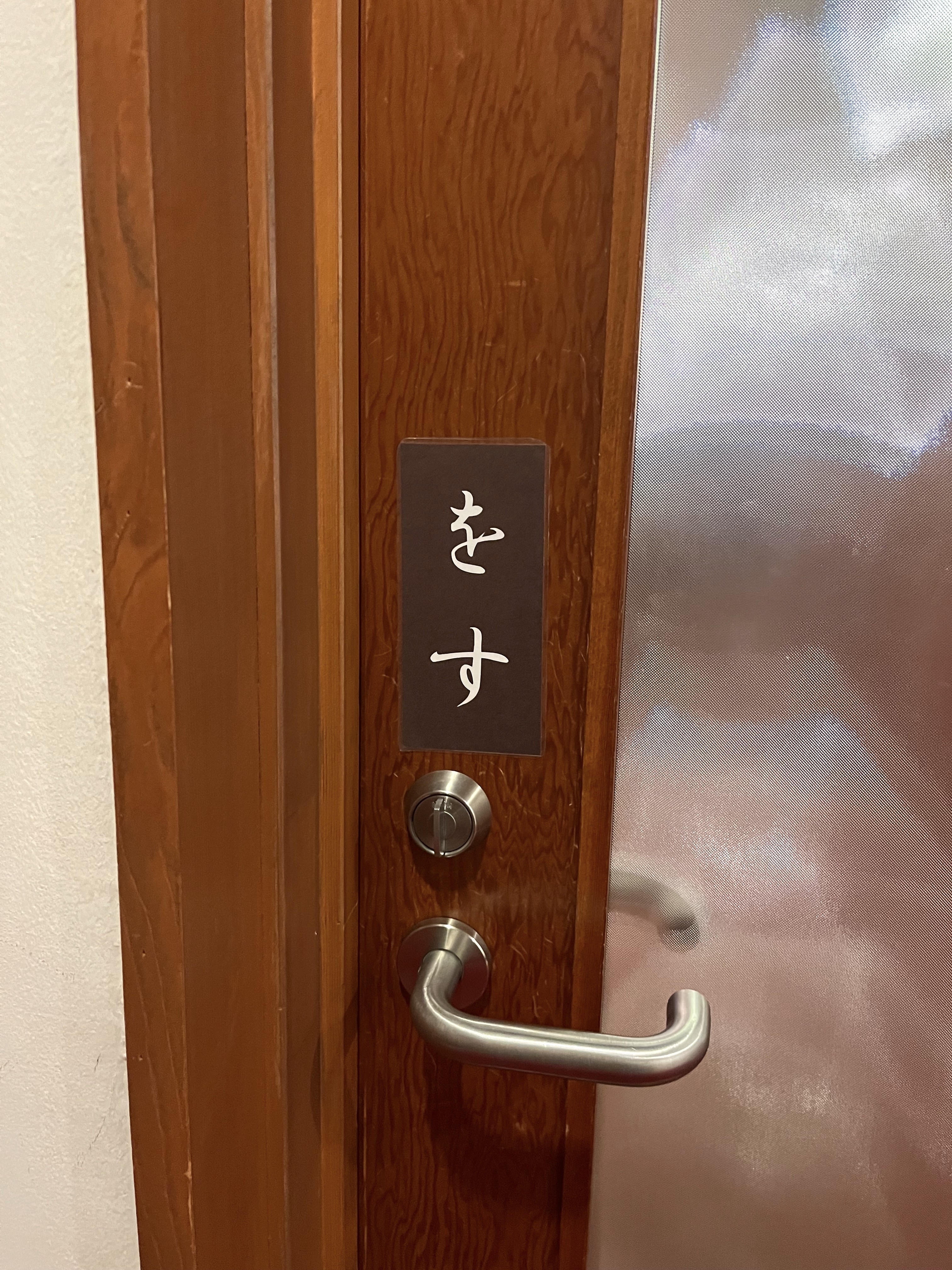69:をす -wosu-
当ホテルの回転扉には「をす」の表記があります。
この表記は、館内のいくつかの場所にも見られるものです。なぜ「おす」ではなく「をす」なのでしょうか?
この回転扉は非常に古いものなので、1946年(昭和21年)に公布された「現代かなづかい」以前の「歴史的仮名遣い」が残っているのかもしれません。
現代かなづかいを公布した当時の内閣を率いたのは吉田茂でした。その吉田茂が、後に1958年(昭和33年)4月に当ホテルへご宿泊されたという記録が残っています。もしかすると、吉田茂はこの回転扉の表示を見て、何か感じるものがあったかもしれませんね。
ちなみに、栃木県をはじめとする北関東では「重い“を”」と表現することがあります(長野県でも同様のようです)。皆様の地域ではいかがでしょうか?
Here's an English translation of your text.
At our hotel, the revolving door is inscribed with the word "wosu" (をす).
This same spelling can be found in several other places throughout the building. Why is it "wosu" and not "osu" (おす)?
The revolving door is very old, so the spelling might be a remnant of "Rekishiteki Kanazukai," or historical kana usage, which was in effect before "Gendai Kanazukai," or modern kana usage, was established in 1946 (Showa 21).
The cabinet that issued the modern kana usage at the time was led by Shigeru Yoshida. There's a record that Shigeru Yoshida later stayed at our hotel in April 1958 (Showa 33). It's interesting to imagine he might have seen the sign on the revolving door and had some thoughts about it.
By the way, in Tochigi Prefecture and other parts of northern Kanto, people sometimes express something being heavy as "omoi wo" (重い“を”). The same expression seems to be used in Nagano Prefecture. Is this a common saying in your area?
【関連項目】
10:回転扉
回転扉

